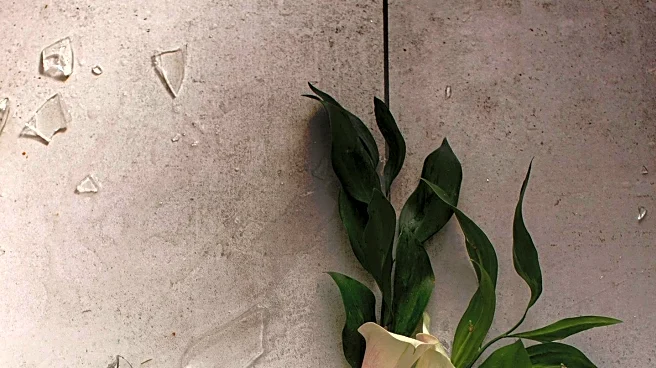What is the story about?
What's Happening?
Carol Saline, a renowned journalist and author, passed away at the age of 86 due to complications from acute myeloid leukemia. In mid-June, Saline reached out to The New York Times to share the news of her impending death, stating she would be entering hospice care and expected to pass away within three to four weeks. Saline had a distinguished career, earning two National Magazine awards as a senior writer at Philadelphia magazine. She collaborated with photographer Sharon J. Wohlmuth on a trilogy of best-selling books in the 1990s, including 'Sisters,' 'Mothers and Daughters,' and 'Best Friends.' Saline's proactive approach to her obituary was intended to relieve her family from the task of preparing it later.
Why It's Important?
Carol Saline's death marks the loss of a significant figure in journalism and literature. Her work, particularly the trilogy of books co-authored with Sharon J. Wohlmuth, has had a lasting impact on the portrayal of relationships in media. Saline's career achievements, including her National Magazine awards, highlight her contributions to the field of journalism. Her decision to manage her own obituary reflects a unique approach to end-of-life planning, emphasizing the importance of personal agency even in the face of terminal illness. This event may inspire discussions on how individuals can take control of their narratives and legacies.
What's Next?
Following Carol Saline's passing, her work and contributions to journalism and literature are likely to be revisited and celebrated. Publications may feature retrospectives on her career, exploring her impact on the industry and the themes she explored in her writing. Her approach to her own obituary could spark conversations about how people plan for their end-of-life arrangements, potentially influencing others to consider similar proactive measures.
Beyond the Headlines
Carol Saline's story raises ethical and cultural questions about how society views death and dying. Her choice to announce her own death and request an obituary highlights the evolving perspectives on mortality and the desire for control over one's legacy. This could lead to broader discussions on the cultural attitudes towards death and the ways in which individuals can assert their autonomy in the face of terminal illness.















